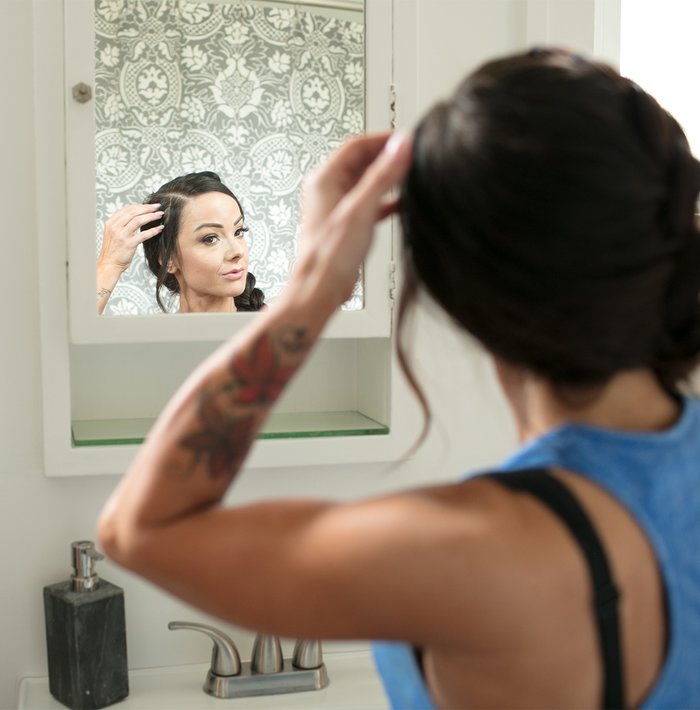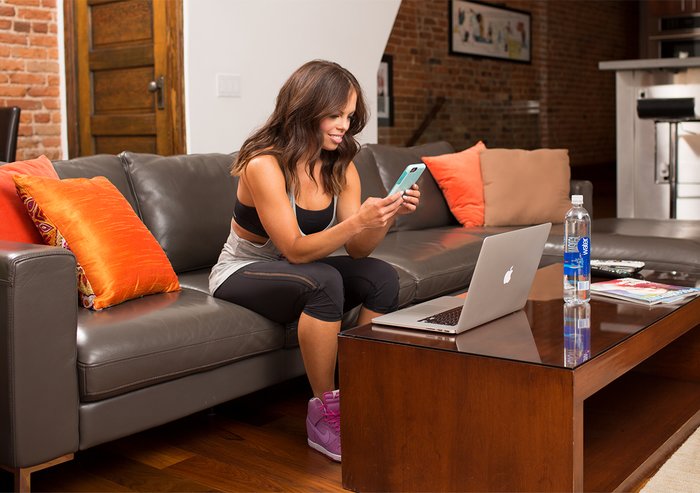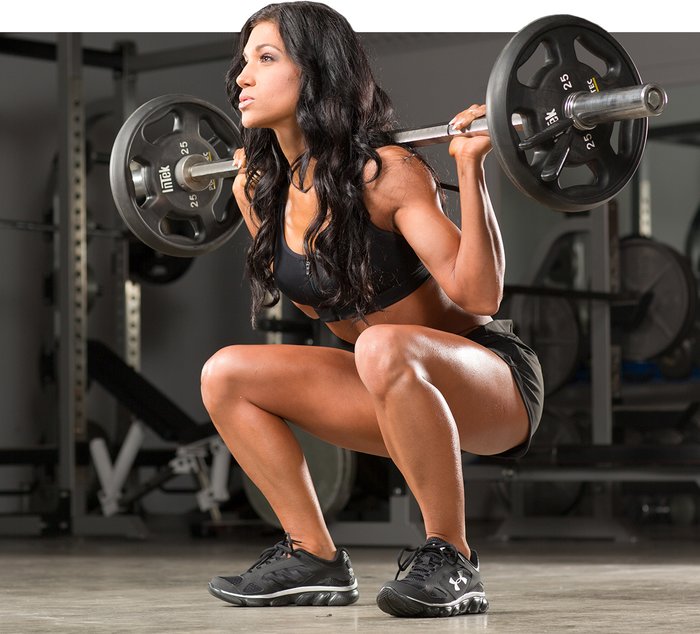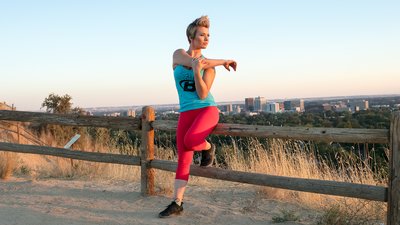We live in a culture that encourages women to always be on a self-improvement journey with their bodies. You should never be satisfied. If you lost a lot of weight and improved your health, you shouldn't stop there. Find the next thing to "fix." Maybe you could style your hair differently, work on decreasing cellulite, or make your butt perkier.
Starting as a young girl and extending well into adulthood, many women are never satisfied with their bodies. They fight their genetics, they fight changes that occur with pregnancy and age, and they fight the image they see in the mirror. There's always something to improve.
During a recent consultation to create a strength-training regimen, a 60-year-old client revealed her decades-long experience with disordered eating habits and self-hatred. Since she was 12, she'd been experimenting with diets and doing everything possible to "look like women are supposed to look." As the media's portrayal of the "ideal woman" morphed on a whim, so did her standards.
"So, did it ever work?" I asked. In short, the answer was no. She couldn't recall a time when she hadn't hated her body. Even the brief periods where she'd attained her "goal weight" weren't enough. There was always something else to improve.
This wonderful woman had spent over 50 years hating her body, constantly chasing an image dangled in front of her—in magazines, on TV, and now littered in social media—as the standard she should try to achieve. She was, understandably, frustrated and exhausted. And, in her words, this was "just part of being a woman." But should it be? Is this entire "hate your body and try to fix flaws at all costs" mentality really a mandatory experience for young girls and women?
"No, seriously. What would you change?"
I recently found myself in a conversation with a woman who didn't believe me when I said I wouldn't change or "fix" any part of my body. "Every woman hates something about herself," she retorted.

I knew what she meant; I'd been there. There was a period of my life when I had loathed my own body and obsessed over my flaws. I developed disordered eating habits, and later I started binge eating. The weight I gained from the binge episodes made me hate my body even more.
I tried to "hate my way" back to skinny. I obsessed over what I could and couldn't eat. I punished myself with brutal workouts—because I had binged, or in preparation for an upcoming binge. The harder I worked out and the more I restricted my food, the more I valued myself. Deprivation and exhaustion were my success metrics.
I wish I'd realized sooner that hating your body does not have to be "part of being a woman." In my case, it was an awareness that took years to grasp. You can't completely reverse the way you view your body overnight, but there are a few ways to start making the change.
Find Your "Why"
Take back the power by identifying what matters to you. Maybe what you really want is to feel confident, have more energy, or feel good instead of running yourself into the ground. Maybe you want to be able to go through an entire day of work and spend time playing with your kids without becoming exhausted. Once you ask yourself what it is you want out of fitness, you can go after it in a positive way.
Quit Using Media as a Measurement
Magazine covers, fitness videos, celebrities, and social media tell us what a woman "should" look like. We're promised happiness if we look more like these women and are told something's wrong with us if we don't.

Do you see the commonality behind these thoughts? They're driven from external sources you have zero control over. You can't determine what new "flaw" will be highlighted next or what the "hot, new must-have body part" will be. You can't control another person's opinion of your body. Allowing your standards and happiness to be determined by forces beyond your control sets you up for failure.
Discover Your Passion
Instead of hating your body, do yourself a favor and focus on what it can do. Then, do more of that! This is why I love strength training; it allows you to discover the marvelous things your body can do, shatters self-imposed limitations, and helps you become the strongest version of yourself. It allows you to transition your focus from how your body looks to what it can do.

Did you shave seconds off your per-mile time? Did you add 10 pounds to your squat? Did you try a new lifting class you would have shied away from before? Those are all wins, and they have nothing to do with how you look.
As women, we need to assess what we want, what we value, and what feels good to us. Hating our bodies doesn't feel good, and it doesn't help us become the best versions of ourselves. We need to stop. Hating our bodies doesn't have to be part of being women.

